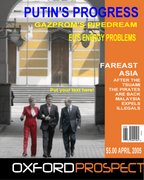Why your MP won't win votes by being a Rebel
A Review of 'The Rebels' by Philip Cowley, Politico’s, £8.99.
What do you really want from your MP?
- Would you prefer him or her to be independent-minded or a party poodle?
- Do you want him or her to be involved with the big national issues of the day or to do something about the rubbish bags at the bottom of your street?
I’ll bet you opted for the first of the two options. If so, you have a funny way of expressing your wishes. The Rebels is a fascinating book by the political academic Philip Cowley, to be published soon, explodes some myths about independent MPs. Conventional wisdom has it that the era of the brave politician who voted with his conscience has been supplanted by the career politician who does what he is told.
As usual, conventional wisdom couldn’t be more wrong. There has been a dramatic revival in backbench independence, not a decline. Parliament has become more of a constraint on Government, not less.
In the 1950s, there were two years in which not a single Conservative MP defied the party whip. In other words, in every single vote, there was complete unanimity among the Government’s backbenchers. But perhaps Blair could afford to let MPs rebel because of the size of his massive majority ever, which allowed MPs in the 2001-05 Parliament to be the most rebellious since the Second World War. And the Iraq revolts were the largest mutinies of any governing party on any policy for more than 150 years.
You might think that voters would reward MPs who showed a spirited defiance against unpopular government measures. Indeed, many Labour MPs justified their defiance on these grounds. As one whip put it to Cowley: “Geraldine Smith believes the people of Morecambe will vote for her. They won’t vote for Tony Blair; they don’t trust or like Tony Blair. But they trust and like her. She thinks that by being seen as an independent spirit, she’ll save herself.”
Smith did keep her seat, but still suffered a swing against her.
In aggregate, Cowley found that Labour rebels did no better at the polls in the last election than their compliant colleagues. And the definitive Nuffield election study by John Curtice found that rebellions on Iraq, foundation hospitals and the prevention of terrorism made not the slightest difference to their vote. Only a mutiny on top-up fees helped a Labour candidate, and then by just three quarters of a percentage point.
What does seem to garner votes, by contrast, is an assiduous focus on local issues. Liberal Democrats have known this for years, and the party’s brand of “pavement politics”, which used to be derided by the two main parties, has now been taken up by Labour and, even more, the Tories.
Conservative Central Office, at the beginning of the last Parliament, made sure that target seats selected candidates early and got them working on the gripes that mattered most to local voters. Thus Justine Greening, the winner in Putney, started a campaign against night flights and wrote to 2,500 residents about what she was doing. It paid off.
Greg Hands, who gained Hammersmith and Fulham, fought the seat as if he were standing for the local council rather than Westminster. His leaflets said nothing about the economy or foreign policy. But he did promise an extra two carriages on the Edgware Road branch of the District Line and to deal with the rubbish blackspots around North End Road.
One Lib Dem MP admitted to me recently: “I always rush to any local meeting opposing a new phone mast even though I know that the people there have probably just bought the new 3G phones that make the mast necessary.”
So, if MPs have sold out, it’s not because they are prepared to support a national policy which they deplore; it’s because they will back any local grievance that might win them an extra vote.
Is that really all you want from them?
The Rebels by Philip Cowley, Politico’s, £8.99
Do you agree with this conclusion? And is Andrew Smith MP following this strategy?



